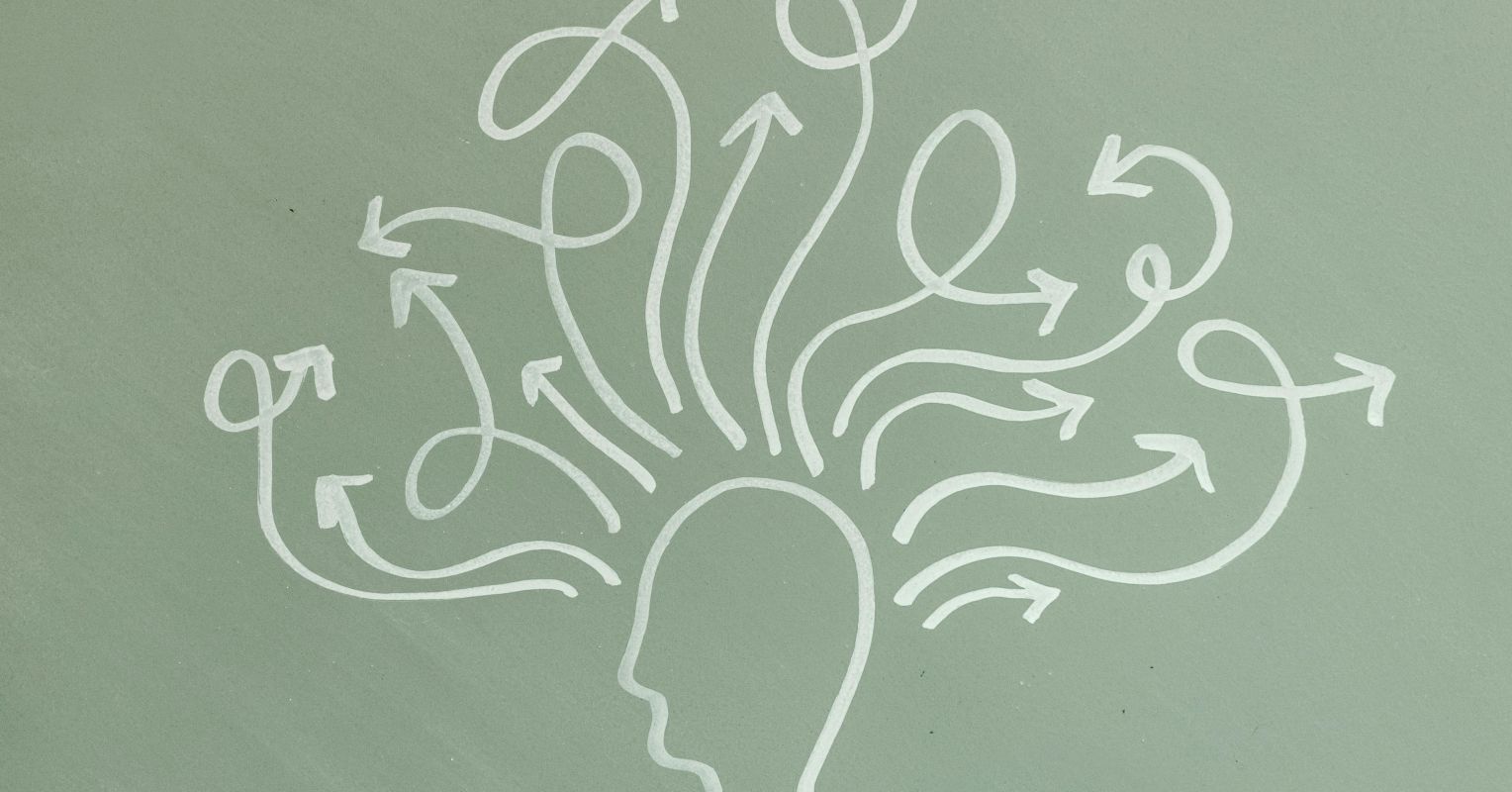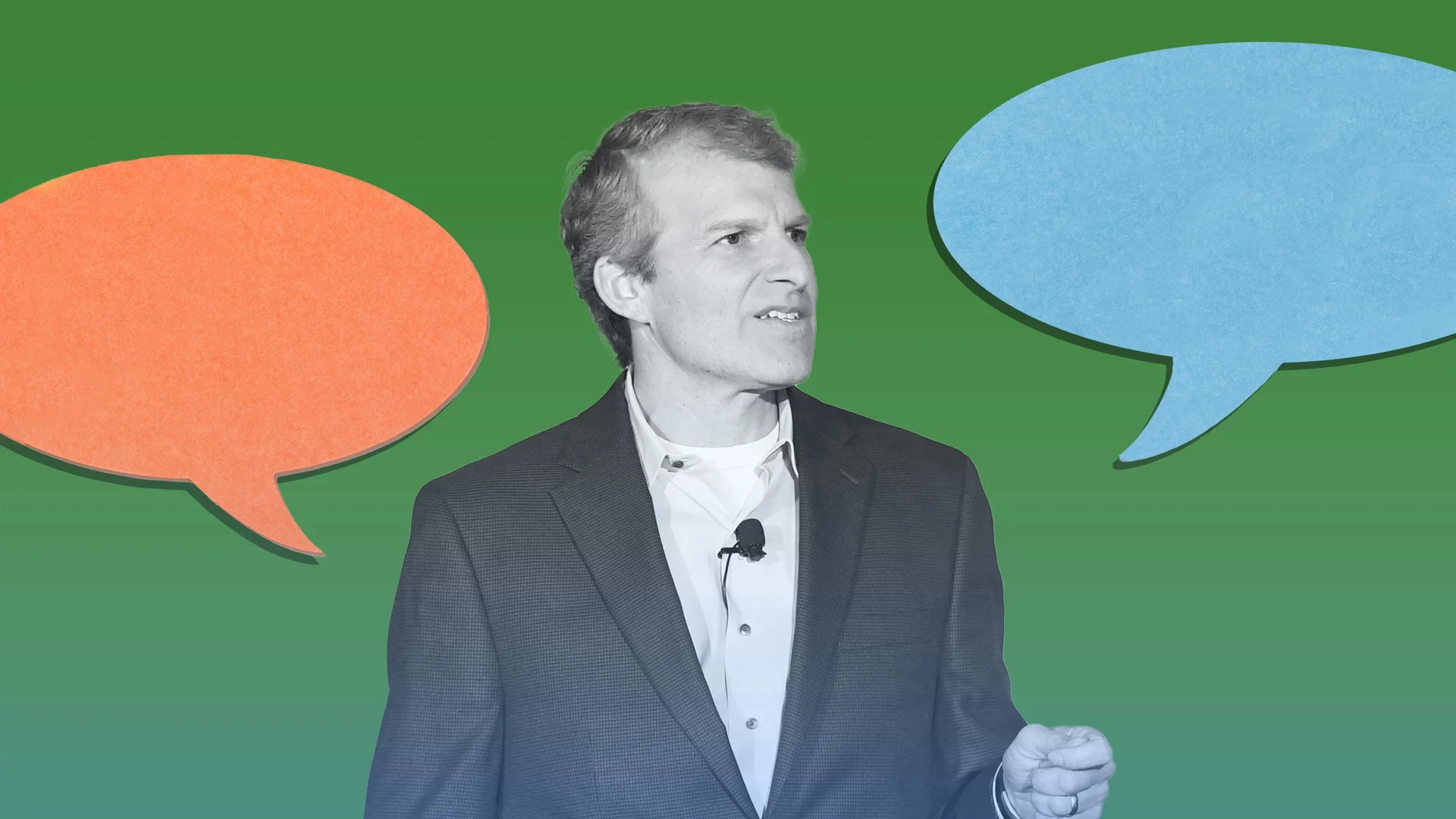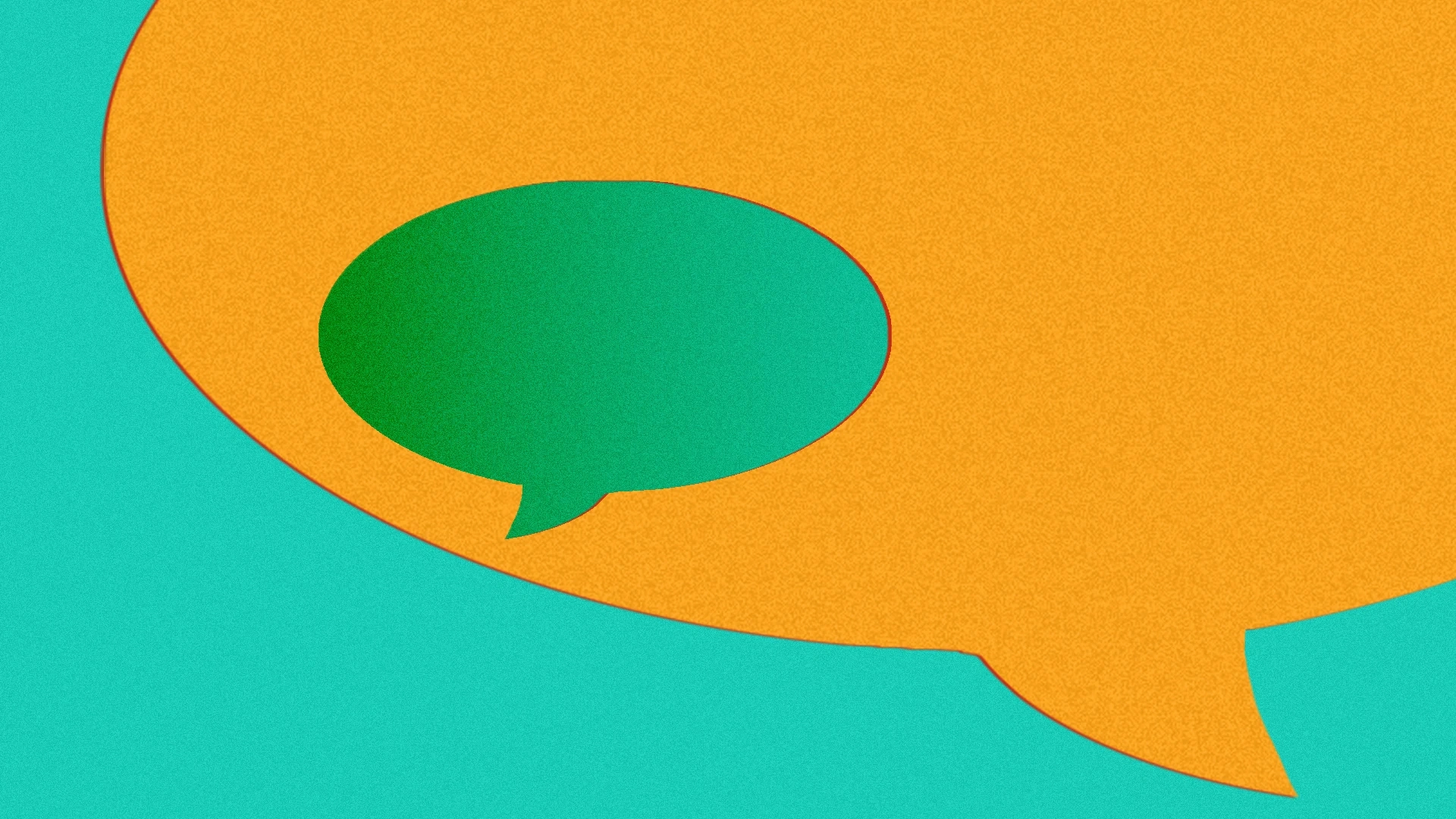#emotional regulation
#emotional regulation
[ follow ]
#emotional-regulation #parenting #mindfulness #stoicism #conflict-resolution #anxiety #resilience #self-compassion
fromPsychology Today
4 days agoWhy Do I Feel Lonely With People I Love?
He said it is not always about bright colors. Dark and grey tones can give an image more depth and strength than bright colors ever could. Also, it can show the rawness of a story and make it more powerful. I was not convinced. I even took a picture of the painting, thinking I would look at it again later. And it took me years to understand.
Mental health
fromPsychology Today
6 days agoStrengthen Your Mind the Way You Strengthen Your Body
Every January, millions of us set goals that promise control: eat better, exercise more, stress less. Yet the most transformative resolution may not be about controlling life-it's about expanding our capacity to engage with it. Stress isn't something to eliminate-it's something to train for. Just as we lift weights to strengthen our bodies, we can stretch our emotional tolerance to strengthen our minds.
Mental health
fromPsychology Today
1 week agoThe Wardrobe Reset and Emotional Alignment
January invites reinvention. Gym memberships spike, planners sell out, and wardrobes quietly become sites of negotiation. Who am I now? Who am I becoming? And what no longer fits emotionally as much as physically? While New Year resets often focus on productivity or discipline, clothing is one of the most overlooked psychological tools for change. What we wear is not superficial.
Fashion & style
fromPsychology Today
2 weeks agoWhy Some People Sound Calm When They're Not
In many collectivistic cultures, emotion is not experienced as purely personal. It is relational. Collectivistic cultures emphasise interdependence, social harmony, and the primacy of group well-being over individual autonomy. People tend to define themselves through relationships, roles, and obligations, and regulate their emotions in ways that maintain cohesion and respect within the in-group. Emotional expression is often moderated to preserve dignity, avoid burdening others, and protect relational stability.
Psychology
fromPsychology Today
3 weeks agoIs Your Stress Impacting Your Leadership?
Leadership today demands more than vision and decisiveness. It requires staying emotionally steady, mentally flexible, and grounded-often while navigating constant pressure and competing demands. Yet many leaders operate in a near-constant state of stress without realizing how much it influences their reactions, decisions, and overall health. Burnout, irritability, poor sleep, and decision fatigue are often chalked up to time management or mindset issues.
Mental health
fromPsychology Today
3 weeks agoDistance and Destruction: The Forces Driving Conflicts
Most couples believe their recurring conflicts revolve around the issue at hand-what was said, what was forgotten, what should have happened differently. But in our work as clinicians, and in our own relationship, we've learned that it's not only the content of the conflict that matters. How partners respond to the conflict plays an equally important role in how quickly-and how well-they recover.
Relationships
fromPsychology Today
3 weeks agoUsing Bedtime Stories to Create Healthy Narratives in Kids
Reading your child a bedtime story-or making one up yourself-has so many benefits, but there's one that is often overlooked: Bedtime stories create powerful narratives in your child that you choose. (For more on narratives and why they're crucial for parents to know about, see this post.) How stories become narratives Children's stories affect kids on an emotional level. For instance, let's take the common absent-parent-returns-home story.
Books
fromPsychology Today
4 weeks agoA Parent's Holiday Survival Guide
As a child and teen therapist, I see families navigating meltdowns, sibling conflict, and unexpected tears, even over the holidays. Parents asking me, "Why does my teen act out all of the time?" or "Why does my 5-year-old have big meltdowns?" has led me to explore more about what is going on in the brain at every age of development.
Parenting
fromPsychology Today
1 month agoSurrounded by Leftover Holiday Food and Feelings?
In the days leading up to the event, we scramble to keep up with our daily obligations while preparing food, decorating, and traveling. The day itself often flies by, leaving us exhausted and hopefully content. But the day after the holiday can be a letdown. If we enjoyed the festivities, we have to wait another year to repeat the event. When things don't go well, we grapple with disappointment or other complex feelings.
Mindfulness
fromPsychology Today
1 month agoWhen Your Adult Child Lashes Out: Here's Why and What to Do
No parent imagines being disrespected by their adult child. Yet each week in parent coaching sessions, I hear about good, loving parents who feel blindsided when their adult son or daughter pulls away, lashes out, or treats them as if they are the problem. Sure, you made mistakes as a parent, but assuming your heart has been in the right place, just remember that the only perfect people are in the cemetery.
Parenting
fromwww.theguardian.com
1 month agoAre you stuck in ordinary - but devastating - narcissism? There is a way out
Next: different walks around different parks with different friends, each with the same feeling of being warmed from the inside out; also, bumping into neighbours at the playground and feeling a part of my community. I remember powerful moments with my patients, who have felt understood, by me and within themselves. And I think of the moving messages from readers who have got in touch, sharing precious stories from their lives.
Psychology
fromPsychology Today
1 month agoManaging Emotional Triggers During the Holidays
These triggers often show up in ordinary moments. Maybe it's the tone of a relative's voice that feels critical, the stress of hosting a party, or seeing a social media post that highlights someone else's "perfect" holiday. You might notice your chest tightening or that you feel on edge around a family member who drinks too much, or suddenly tear up when a holiday tradition reminds you of someone you've lost.
Mindfulness
fromTiny Buddha
1 month agoHow to Return to Emotional Safety, One Sensory Anchor at a Time - Tiny Buddha
"In a sense, we are all time travelers drifting through our memories, returning to the places where we once lived." ~Vladimir Nabokov I found it by accident, a grainy image of my childhood bedroom wallpaper. It was tucked in the blurry background of a photo in an old family album, a detail I'd never noticed until that day. White background.
Mindfulness
fromPsychology Today
1 month agoHow To Navigate Thanksgiving Stress Without Losing Your Mind
You can't control what other people say or do, but you can control your responses and how you carry yourself in stressful circumstances. A friend or family member may say something you disagree with, and your first impulse might be to persuade, convince, or argue with them. Such disagreements are common forms of family conflict that often arise for many during the holidays.
Mindfulness
Parenting
fromBuzzFeed
2 months ago'I Took My Kids' Tablet Devices Away - Parenting Has Never Been Easier'
Reducing children's screen time can re-engage senses, improve emotional regulation and behaviour, and foster calmer, more cooperative family relationships when balanced with realistic family needs.
fromPsychology Today
2 months agoYou're Not Bored, You're Just Regulated
I sat in my therapist's office and said the words out loud for the first time: "That lightning isn't there." I was talking about Vanessa. About how when she touched me there was this comfort and calm I hadn't felt before. It lingered. It confused the hell out of me. Every relationship before her? Lightning. That activated, can't-eat-can't-sleep, my-stomach-is-in-knots feeling. The kind of intensity that made me feel alive. The kind I thought was proof we were meant to be.
Mental health
fromPsychology Today
2 months agoAdapted Cognitive Behavioral Therapy for Misophonia
Misophonia is an intricate condition characterized by an intense emotional and physiological fight-flight-freeze response to specific auditory or visual triggers. Crucially, it is understood as a primary neurophysiological disorder, not a phobia or a fear-based condition, a distinction that fundamentally dictates the appropriate therapeutic approach. Treatment must therefore focus on surrounding the moment of distress and adapting to the complex emotions and behaviors that arise, rather than targeting the trigger itself.
Mental health
fromBuzzFeed
3 months agoAre You Mean When You're Overstimulated? There's Actually A Reason For That.
A few weeks ago, a viral tweet perfectly captured a phenomenon familiar to many of us. The post ― a response to someone's question "what's your biggest ick about yourself?" ― read simply: "i can be really mean when i'm overstimulated." Judging by the retweets, it seems 55,000 people could relate. If you've ever snapped at your partner after a bad day, or had an outburst during a frustrating call with a customer service agent, you may understand the meaning behind the tweet. We're not exactly at our best in moments like these, but they're part of the human response to being overstimulated.
Mental health
fromPsychology Today
3 months ago3 Truths About Emotions That Most People Don't Know
Yet emotions are the most vital signals our bodies send us, and the most vital information about our lives. What a juxtaposition. If we listen carefully, they can tell us exactly what our problems are and what the solutions can be. I believe that therapists would be in much lower demand if humans had higher emotional access, acumen, skills, and expression-better awareness and understanding, especially with vulnerable emotions in general.
Mental health
fromPsychology Today
3 months agoHow to Deal With Being Disliked at the Office
Some people have an uncomfortable work environment because their coworkers treat them poorly, and even worse, some of these people disturb themselves about it. To address this problem, first apply the Problem Separation Technique (PST). Ask yourself, do I have a practical problem, and if I do, am I creating an emotional problem about my practical problem? The Practical Problem If you are disliked at work, this may present a Practical Problem: Ask yourself these questions: 1. What are my goals each day at the office?
Mental health
fromPsychology Today
3 months agoHow Thinking Skills Protect Adolescents From Family Stress
For most teenagers, stress is part of daily life. Poor grades, awkward encounters with friends, or being anxious about the future can all trigger worry. These stress-inducers are occasional. But when the stress is tied to family, it feels personal. It lingers after the school day ends, seeps into late-night hours, and becomes impossible to escape. Imagine a teenager seated at their desk trying to focus on homework while raised voices are heard from the next room.
Mental health
fromPsychology Today
3 months agoHow to Stop Living in the Emotions That Hurt You
You may be familiar with a particular feeling because you were exposed to it often while you were growing up. Maybe you were raised by an anxious parent who constantly warned you about the potential dangers that surrounded you. You may find yourself constantly bracing for something to go wrong or perseverating about the future and things that haven't even happened yet. That might mean you're habituating to worry and fear.
Mental health
Psychology
fromFortune
3 months agoDo you know your attachment style? It could be the reason you're not getting promoted at work | Fortune
Insecure attachment styles—disorganized, anxious, or avoidant—undermine workplace relationships, emotional regulation, collaboration, and promotion prospects, while secure attachment supports career progression.
fromPsychology Today
3 months agoGetting Rid of Difficult Thoughts and Emotions
In psychology, this is called experiential avoidance. Trouble is, this experiential avoidance may seem helpful in the moment, but research shows that continuous avoidance of uncomfortable or upsetting thoughts can actually increase our anxiety and distress. Indeed, Dr. Russ Harris outlined in his book The Happiness Trap that experiential avoidance contributes to anxiety, depression, and numerous other mental health challenges; the harder one tries to avoid the uncomfortable thoughts and feelings, the "more bad feelings we create."
Mindfulness
fromPsychology Today
4 months agoSelf-Soothing: The Kind We Bring From Childhood
Self-soothing advice is all over the internet, much of it in the form of warnings to avoid potentially damaging sorts like "shopping therapy" or bingeing on Ben and Jerry's, or worse, vodka martinis. Instead, experts suggest using the "good" ones, which seem to run the gamut from stimulating your vagus nerve to hugging yourself. Among the University of Miami's recommendations to faculty and staff in their current summer newsletter is "tapping."
Mental health
Artificial intelligence
fromBusiness Insider
4 months agoTalking to AI helped her be a calmer, better mom - so she vibe-coded a web app to help others emotionally reset
Crash Out Diary uses an AI chatbot to provide a single-message pep talk and guided grounding activities for anonymous emotional regulation.
Parenting
fromBuzzFeed
4 months agoTeachers Are Revealing Parenting "Red Flags" They Notice Right Away When Meeting A Parent Or A Kid For The First Time
Teachers identify parenting red flags including rigid ideological statements, device-based soothing that prevents emotional regulation, and parents downplaying children's misbehavior.
fromPsychology Today
4 months agoHire a Teenager While They Still Know Everything
I have always thought the phrase "Hire a teenager while they still know everything" was a very clever sentence. It works on the premise that teens think they always know best and, therefore, think they "know everything." It may be funny, yet it belies a real truth, which is that teens often act as if they know more than they do. Think about the last time you tried to instruct an adolescent about something.
Parenting
fromScary Mommy
4 months agoChild Experts Reveal How They Handle Their Own Kids' Meltdowns
What exactly constitutes a meltdown? As Lorain Moorehead, an individual and family therapist, explains, a meltdown is, on some level, a child's expression of their opinion or preference. "Their body is dysregulated either because of their real or perceived need not being met, and they are communicating it with the tools they have available in the moment, which in the case of a meltdown might be tears, volume, or other means to return to a state of control," she says.
Parenting
[ Load more ]



































